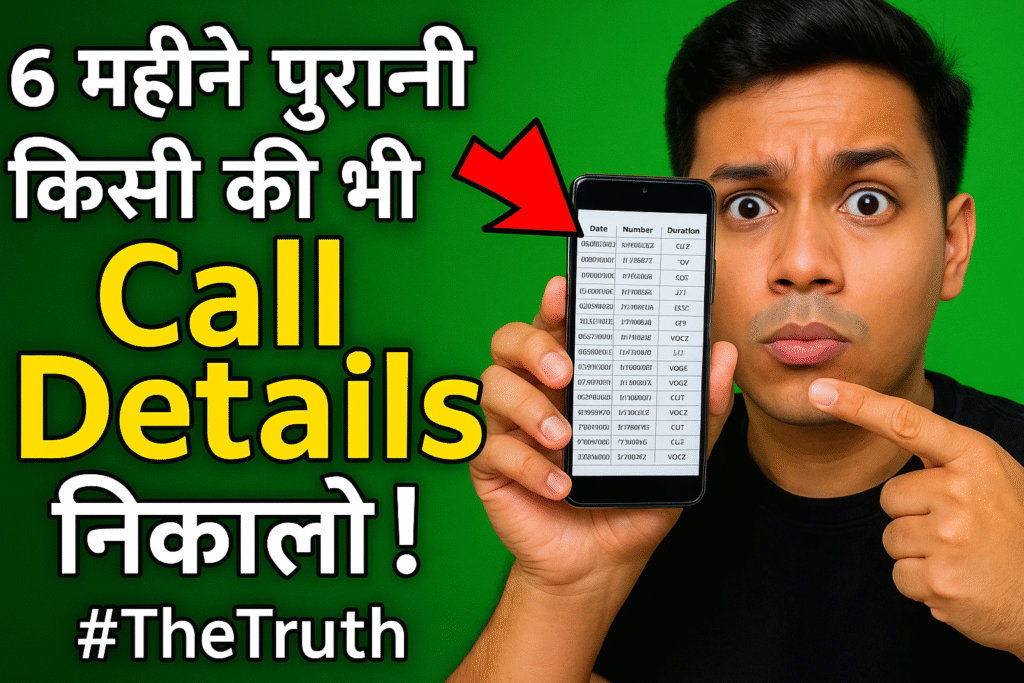In today’s digital age, understanding how to access Call Detail Records (CDRs) legally in India is crucial for individuals and professionals alike. CDRs, which include metadata such as call duration, timestamps, and involved numbers, are maintained by telecom operators and are not accessible to the general public without proper authorization.

Understanding Call Detail Records (CDRs)
CDRs are logs maintained by telecom companies that detail the metadata of phone calls and messages. This information includes:
- Caller and Receiver Numbers: The phone numbers involved in the communication.
- Date and Time: When the call or message was made.purushayog.in+3India Today+3Legal Service India+3
- Duration: Length of the call.
- Location Data: Cell tower information indicating the caller’s location.
It’s important to note that CDRs do not contain the actual content of the conversations or messages.
Legal Procedures to Obtain CDRs
Accessing CDRs without proper authorization is illegal and can lead to severe penalties. However, there are legitimate ways to obtain these records:
1. Law Enforcement Requests
Authorized law enforcement agencies can request CDRs during investigations. Such requests must be approved by a senior officer, typically of Superintendent rank or higher. The process involves submitting a formal request to the telecom service provider’s nodal officer.
2. Court Orders
Courts can direct telecom companies to provide CDRs if deemed necessary for legal proceedings. This is often facilitated through an application under Section 91 of the Criminal Procedure Code.
3. Personal Access
Individuals can access their own call records through official channels:
- Telecom Apps/Websites: Most service providers offer detailed call histories via their official apps or customer portals.
- Customer Care: Users can request call details by contacting customer support, subject to verification processes.
Illegal Access and Consequences
Unauthorized access to someone else’s CDRs is a violation of privacy laws in India. Such actions can lead to legal repercussions, including penalties under the Information Technology Act. Recent incidents have highlighted the seriousness of such offenses.
Best Practices
- Always follow legal procedures when seeking access to CDRs: Ensure that any request for CDRs is made through proper legal channels to avoid violating privacy laws.
- Avoid third-party services or applications that claim to provide call details without proper authorization: These services are often illegal and can lead to severe penalties.
- If you suspect unauthorized access to your call records, report it to the cybercrime authorities immediately: Prompt reporting can help in mitigating potential damages and initiating legal action against the perpetrators.
Conclusion
Understanding and respecting the legal boundaries surrounding CDRs is crucial to safeguarding personal privacy and adhering to the law. Always ensure that any access to call records is done through legitimate and authorized channels.
Note: This article is for informational purposes only and does not constitute legal advice. For specific legal concerns, consult a qualified attorney.
